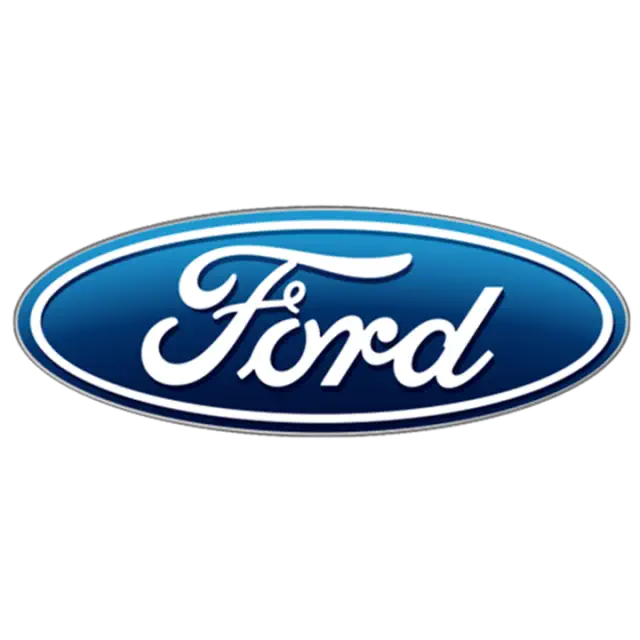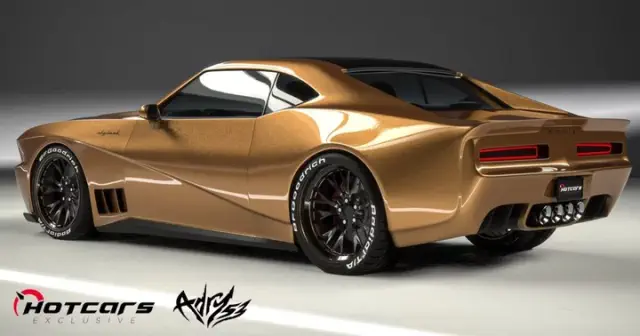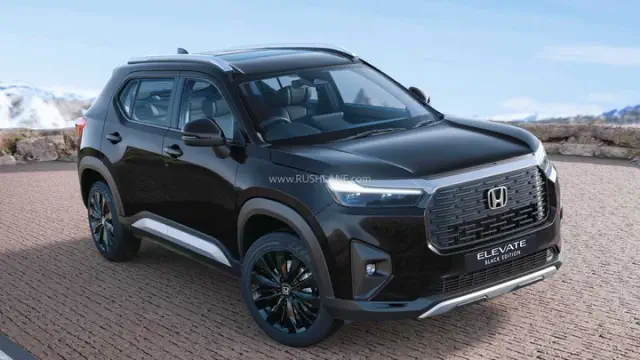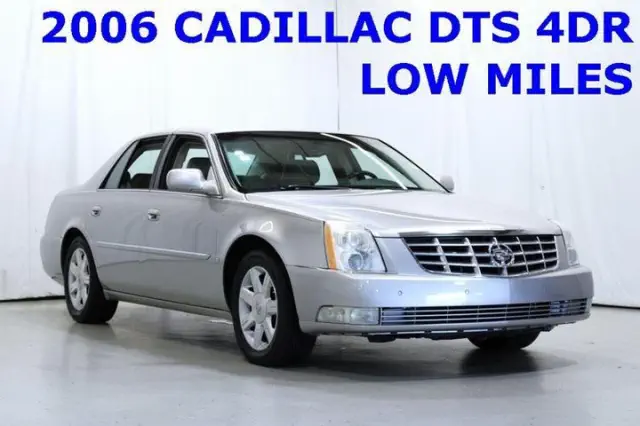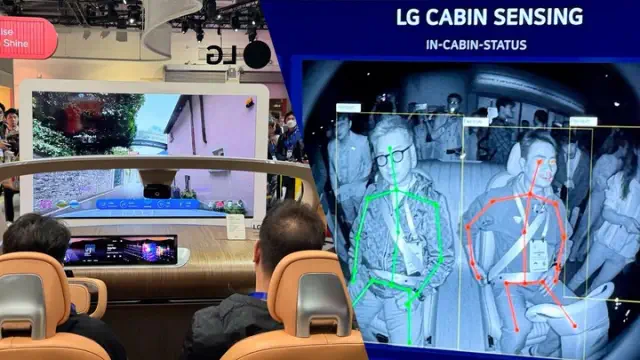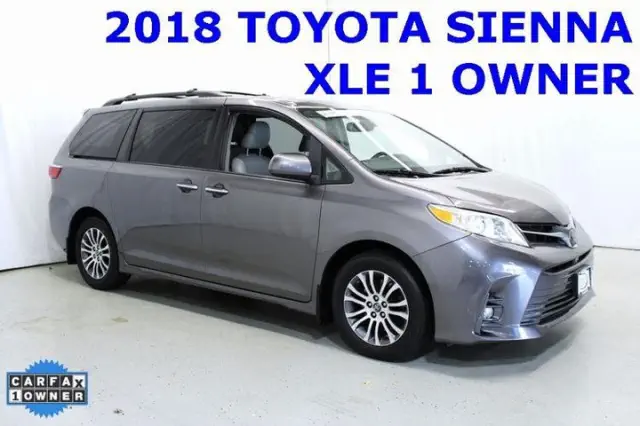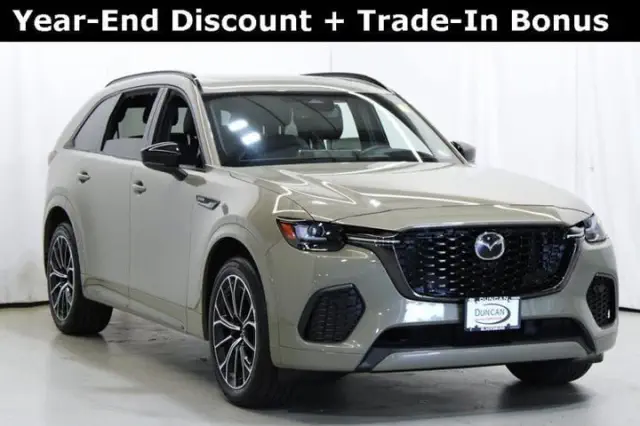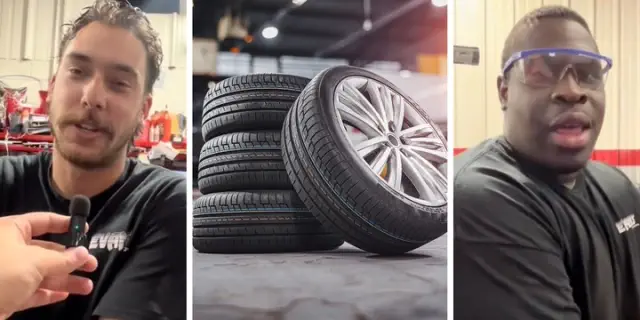Toyota's "multi-pathway" strategy is set to undergo evaluation soon. Additionally, Hyundai seeks to engage with Trump, while Tesla outperforms Audi.
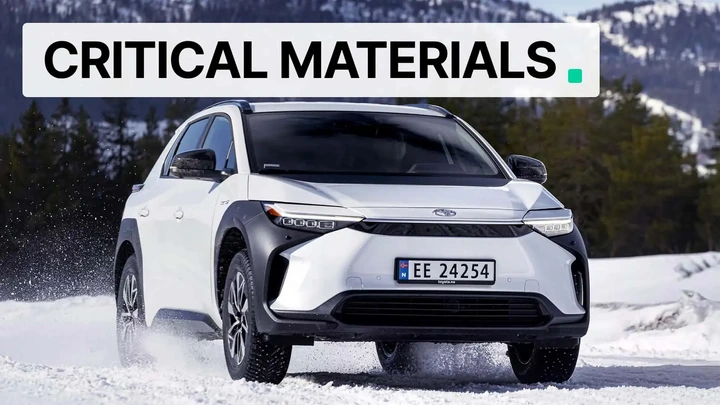
View pictures in App save up to 80% data.
Generally speaking, I wouldn't dismiss Toyota in the competition for electric vehicles or any emerging transportation technology. However, my optimism has its boundaries. Despite Toyota enjoying a remarkable year in the U.S. in 2024, largely due to its hybrid models, signs of trouble are emerging in various global markets. The effectiveness of its "multi-pathway" strategy—developing a variety of powertrains—is poised for a significant test in several crucial regions. One particular market provides insight into the future direction of Toyota's electric vehicles.
That kicks off this Monday edition of Critical Materials, our morning roundup of auto industry and technology news. We're in a bit of a post-CES 2025 news drought today, which is fine by me, but expect more coverage from InsideEVs about the rest of last week's trade show soon.
Additionally on the agenda today: Tesla surpasses Audi in global sales for the first time, while Hyundai reaches out to President-elect Donald Trump, who is set to return to the White House in just one week. Let's explore further.
30%: Enhancing the bZ4X Experience
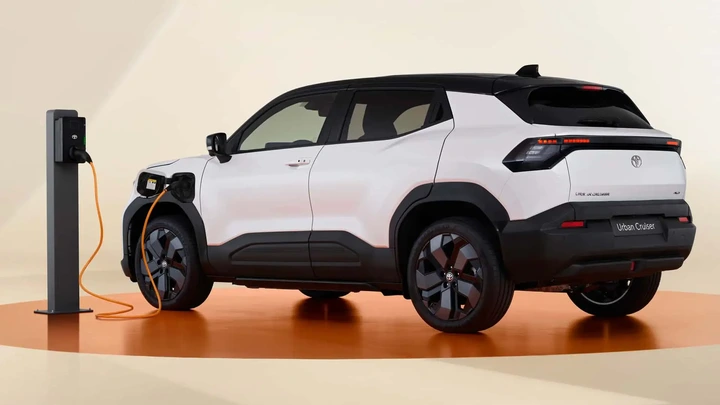
View pictures in App save up to 80% data.
Image credit: Toyota
2025 Toyota Urban Cruiser
Toyota stands out as one of the last automakers that genuinely functions on a global scale, capable of delivering various vehicles tailored for different regions. In Japan, you’ll find efficient city cars, while the United States enjoys robust trucks like the Tacoma and Tundra. Meanwhile, the Middle East and Africa are served with classic diesel Land Cruisers—it's a diverse lineup. Toyota offers a range of vehicles, including traditional combustion engines, hybrids, and hydrogen-powered options, although the hydrogen initiative hasn't been as successful as hoped.
One area where Toyota knows it's deficient is purely electric vehicles. Company executives seem to be acknowledging this white space more and more, as they did to InsideEVs at CES just last week. Toyota may have the R&D, capital and infrastructure to make many different kinds of cars without committing to one single solution, but it doesn't want to lose sales. And it is in China right now.
But there are other places where the EV revolution is also in force. One of them is Norway, where the new car market is basically 90% electric. Granted, that's only a few hundred thousand cars—Americans bought probably 15 million last year, for context—but no car company wants to lose anywhere. So this interview of Toyota Norway CEO Piotr Pawlak with the country's Motor publication is very telling. Some excerpts, with help from Google Translate:
This involves multiple components. The Norwegian department will not only provide education to other markets but will also strive to promote the sale of electric cars in Norway to the fullest extent.
As the electric vehicle market in Norway is projected to surpass 90 percent by 2025, it plays a crucial role in the overall European electric car landscape. Additionally, the expansion of electric cars in Norway is likely to be more robust than that of the bZ4X model.
Norway has fully committed to electric vehicles, leaving behind any interest in hybrid sales within the country. These hybrids can be marketed in other regions where they are profitable. Consequently, Pawlak is keen on focusing exclusively on electric car sales. By 2025, it's expected that at least 80 percent of the Toyotas sold in Norway will be electric models.
[...] We have learned from the bZ4X crisis, he says, guaranteeing that the upcoming models will have battery preheating, a good route planner and generally electric car technology that is expected in today's market.
The latest car models will be designed for optimal charging in Norway and will come equipped with four-wheel drive capabilities.
The "bZ4X crisis" refers to the same criticisms U.S. and European EV shoppers have of Toyota's primary electric offering: its range, price, charging and software specs are already uncompetitive and getting outclassed by new entries all of the time. In the case of chilly Norway, a good EV needs proper four- or all-wheel-drive, cold weather resilience, battery preconditioning and route-planning. The bZ4X doesn't measure up on most of that.
But I bring this up Pawlak's comments do matter to the rest of the world: if what the CEO says is true, then Toyota's clearly working on this stuff. It has high hopes for the new Urban Crusier compact electric (pictured above) and has several new EV models planned globally for 2026 and beyond. Some of those EVs will assuredly be Europe-specific and it will likely continue leaning on local partners in China, but more and more, the message is clear: Even if Toyota doesn't envision an all-electric future as other carmakers do, it can't let EVs be some afterthought anymore. And in the U.S., people certainly want good electric options from this trusted brand.
60%: Tesla Surpasses Audi Worldwide For The First Time
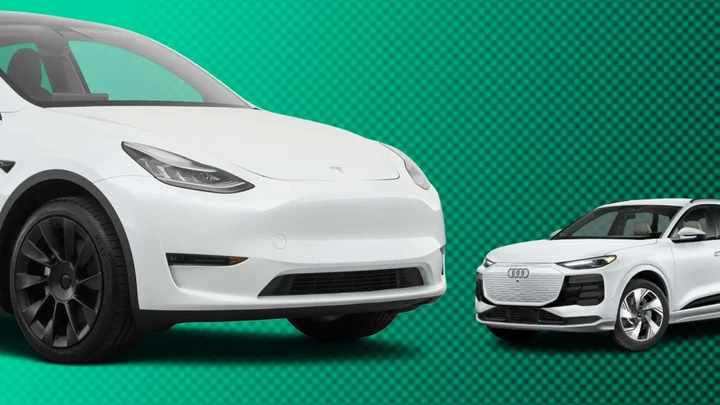
View pictures in App save up to 80% data.
Image credit: InsideEVs
Speaking of things that aren't working, the Volkswagen Group is keenly aware that Audi is pretty far from the power-hitter that it was in the 2000s and 2010s. Global Audi sales were down a whole 14% in 2024 and the declines hit the entire lineup. It's an older lineup, too, and perhaps speaking subjectively, the new crop of Audis just don't look as cool as the white-hot Audis did 20 years ago. And amid all of the VW Group's wider technology challenges, their software and automated driving features lag behind many competitors.
So who pulled ahead of Audi last year? None other than Tesla, Bloomberg reports:
Tesla overtook Audi, one of Germany’s most prized premium car brands, last year despite selling fewer vehicles than expected.
Audi sold 1.67 million vehicles in 2024, down 12 percent from a year earlier. Audi’s struggle with intensifying competition in Europe and China and weak demand for its electric models dropped the brand behind Elon Musk’s Tesla, which delivered 1.79 million vehicles last year.
Tesla's swift growth over the past few years has placed the company in a prime position to capitalize on any missteps made by established competitors. The Model Y SUV is now one of the top-selling vehicles globally and is set to receive an update this year.
German automotive manufacturers are facing lukewarm demand for luxury vehicles in China, where the path to recovery is still unclear and domestic competitors are increasingly targeting the high-end market.
I'd also argue that Tesla has an "aging lineup" problem of its own, with the Cybertruck not really moving the needle much last year. But the new Model Y is on its way. I'd be shocked if that doesn't sell well on its own.
So can Audi catch up? It's about to launch its biggest new product offensive ever, ranging from the new Q6 E-Tron to the A6 E-Tron sedan and gas-powered A7 and Q3. (Remember, at Audi, even numbers are electric and odd ones are gas and hybrid cars.) But the fact that Audi offers many different kinds of powertrains and still got smoked by an all-electric automaker shows it has work to do.
Hyundai Seeks Trump's Favor as Well
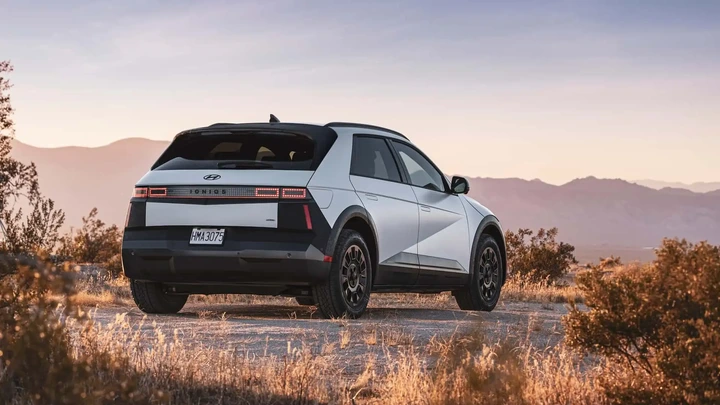
View pictures in App save up to 80% data.
Image credit: InsideEVs
2025款现代Ioniq 5 XRT
Many individuals who oppose Trump have voiced their concerns regarding the significant contributions made by various companies—such as Ford, General Motors, and Toyota—to his inaugural fund. Critics argue that these corporations are attempting to forge business ties with a president known for prioritizing transactional relationships. For those who are not supporters of Trump, the notion of their hard-earned money from purchased products benefiting him is likely unappealing.
Regardless of how you feel, you can add Hyundai to that list, the Wall Street Journal reports. It's making a $1 million donation to Trump's inaugural fund. And part of that goal seems to be a sit-down with the president to try and talk him out of his anti-Mexico tariffs, which would be extremely disruptive to the automotive supply chain:
Hyundai has notably initiated a proactive strategy to establish connections with advisers of Trump. The automaker has communicated to the president-elect's team that it aims to contribute to job creation in the U.S. and to support the American automotive sector.
Should the company secure a meeting with Trump, whether at his Mar-a-Lago estate in Florida or at the White House after he assumes office, there are plans to send Hyundai CEO José Muñoz along with Hyundai Motor Group executive chair Euisun Chung to attend, according to sources familiar with the situation.
Executives from Hyundai, such as Muñoz and Hyundai Motor Group Vice Chair Jaehoon Chang, are likely to be present at the inauguration festivities, sources indicate. A contribution of $1 million grants access to six tickets for a private candlelight dinner with Donald Trump and Melania Trump on January 19, the day prior to his presidential swearing-in, as outlined in a benefits package obtained by The Wall Street Journal. Additionally, this donation includes six tickets to a private reception on January 18, featuring Trump's selected cabinet members, along with access to other exclusive gatherings.
Trade analysts have indicated that Hyundai is likely to face significant challenges due to tariffs, as a substantial portion of the components utilized in its vehicles are sourced from overseas. “They will experience a direct impact on sales in the United States, and even vehicles produced domestically will suffer because of their reliance on imported parts,” remarked Scott Lincicome, a vice president at the Cato Institute, which focuses on research related to international trade.
The U.S. is by far Hyundai's biggest and most important market, and it remains heavily dependent on Mexico for production and the overall supply chain. (Nobody at Hyundai will talk about this openly, but this is probably why the Kia EV3 is taking so long to get to the U.S.; they may not be sure yet where and how they can build it, and what impact tariffs would have on those plans.)
Meanwhile, Mercedes-Benz said it congratulates the incoming president, but does not have plans to donate to his inaugural fund. Do with that information as you will.
100%: What Strategies Will Audi Use to Regain Its Competitive Edge?
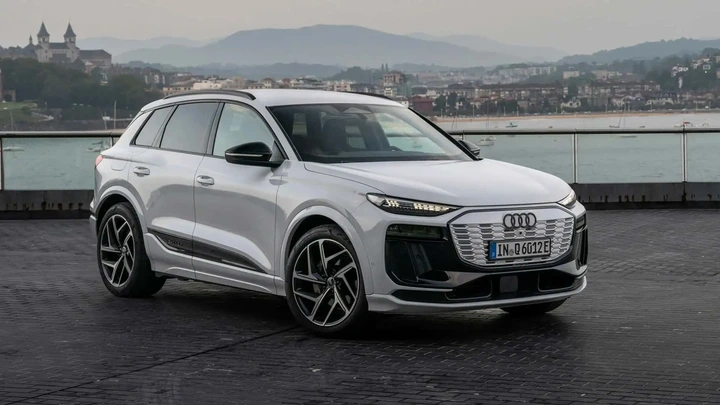
View pictures in App save up to 80% data.
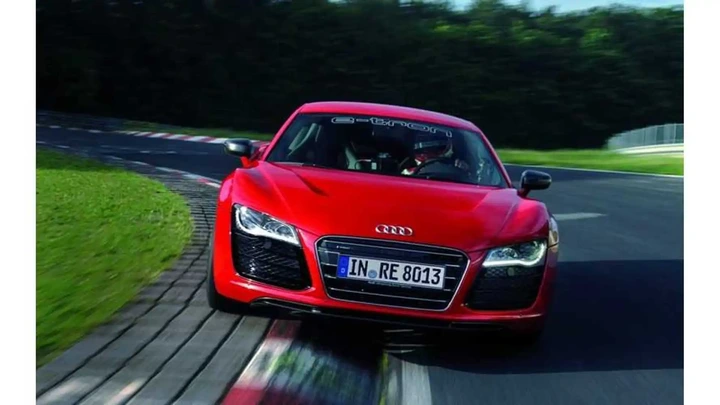
View pictures in App save up to 80% data.
A strong design approach would be an excellent beginning. I prefer something akin to the car on the right rather than the one on the left, Audi. The sleek and aerodynamic design that originally established Audi's reputation could be perfectly suited for the electric age.
What suggestions do you have for Audi? Share your thoughts in the comments!
Got a tip for us? Email: [email protected]
